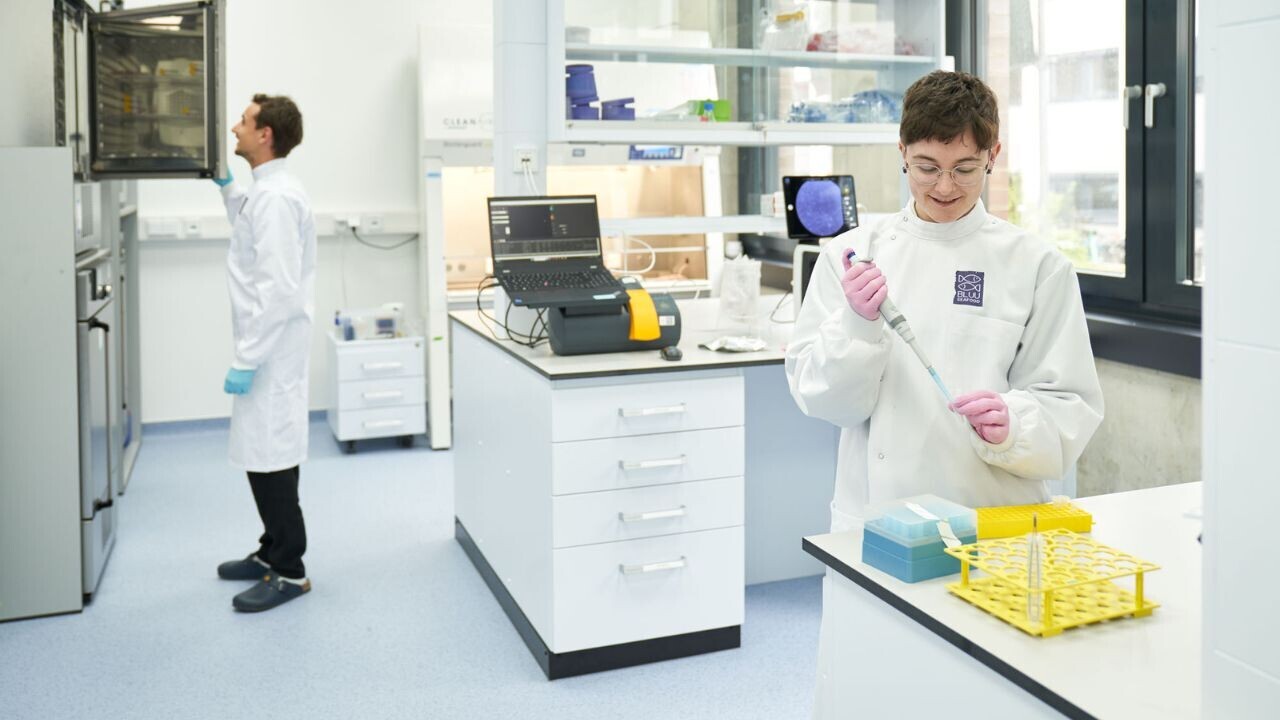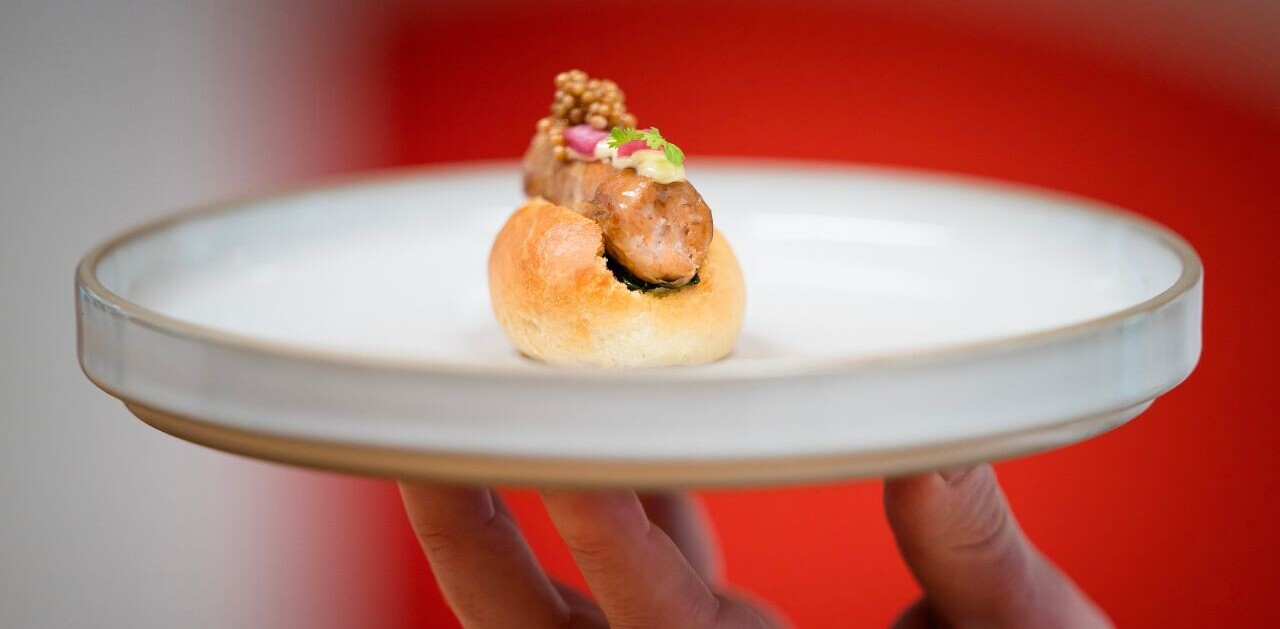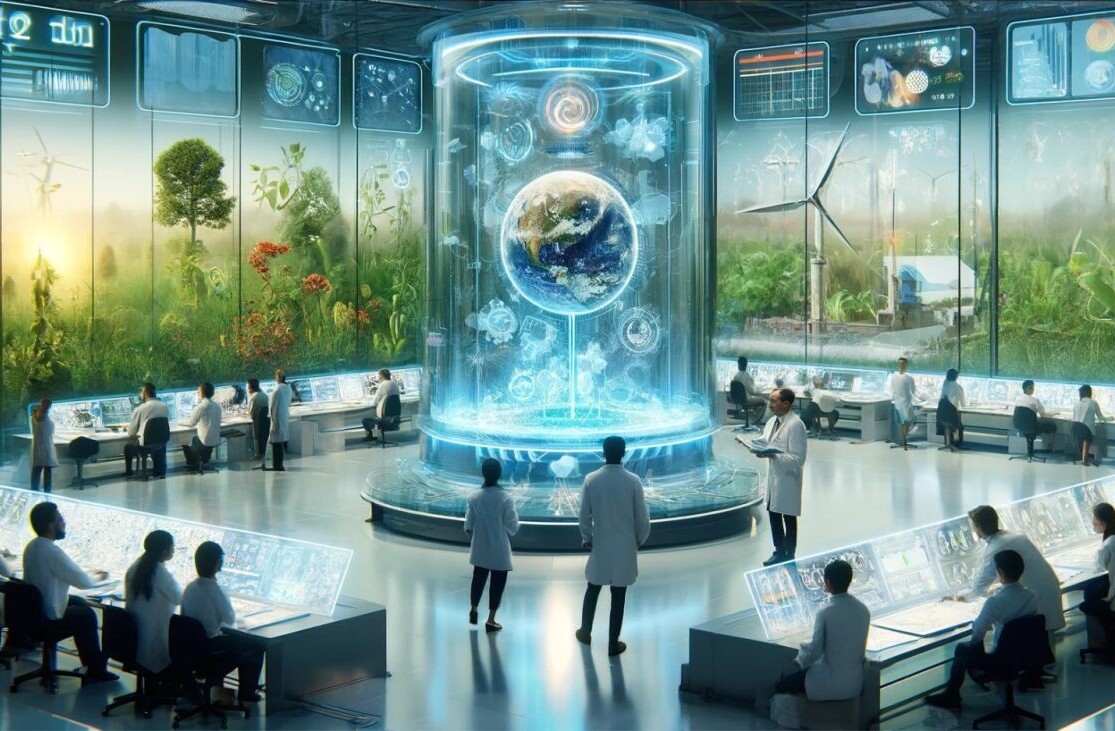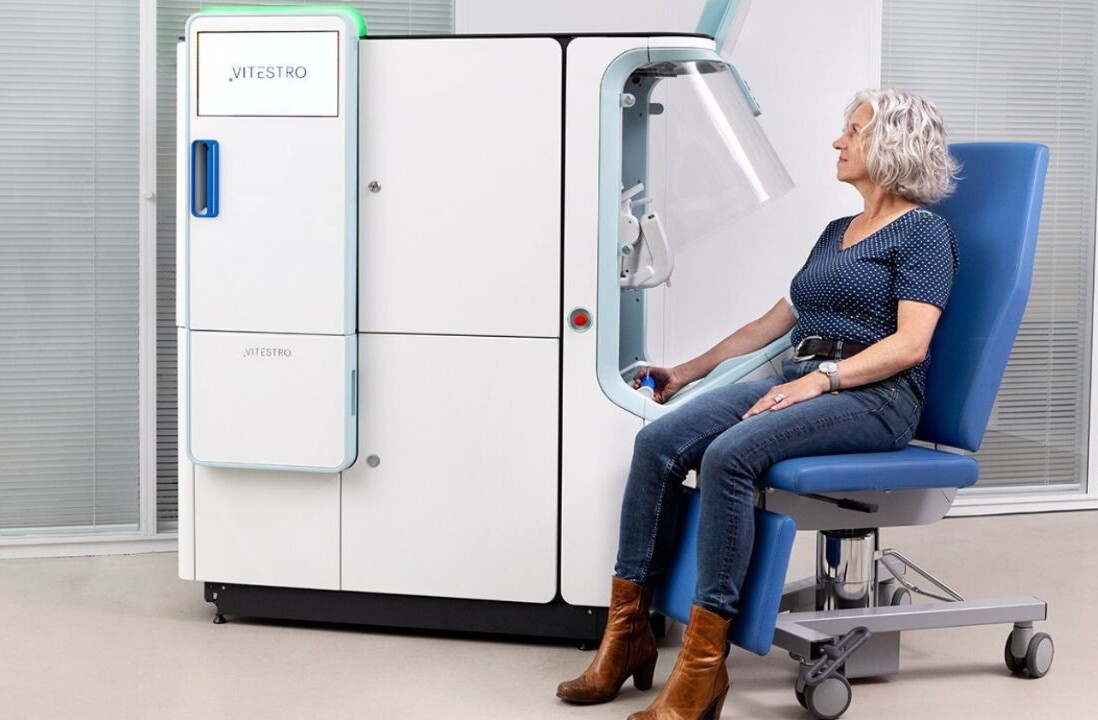
German startup Bluu Seafood today launched Europe’s first pilot plant for cultivated fish.
The facility in Hamburg brings lab-grown seafood a step closer to the market. Bluu had previously developed the controversial food in a small lab in Lübeck, Germany. The new site expands the work across 2,000 square metres of customised research, production, and office space.
At the plant’s core are new fermenters for cultivating muscle, fat, and tissue cells from Atlantic salmon and rainbow trout.
The current devices have a capacity of 65 litres. But Bluu said they can increase to 2,000 litres, providing space to grow far larger quantities of fish.
The recipe begins by extracting cells from real salmon and trout. No animals are harmed during the making of this cuisine, Bluu promises.
In the temperature-controlled fermenters, oxygen and nutrients are fed to the cells, which then develop and multiply. Once fully grown, the cell mass is harvested and refined. It’s then formed into familiar products, such as fish sticks or fish balls.
Cultivated fish approaches the market

Bluu says the lab-grown products have a similar taste, nutritional content, and cooking behaviour to today’s supermarket versions. But cultivated fish sidesteps the GMOs, heavy metals, and microplastics that often contaminate conventional seafood.
Another selling point is the environmental impact. Almost 90% of global marine fish stocks are overfished or fully exploited, according to the UN. Industrial farming also pollutes its surroundings and creates hotbeds for disease.
Cultivated fish could offer a greener alternative. By opening the new plant, Bluu hopes to commercialise the process.
“If the scalability and market conditions are favourable, we will be able to offer cultivated fish at wholesale fish prices in as little as three years,” said Sebastian Rakers, the startup’s co-founder and co-CEO.
“The new site is an important building block in this development.”
To meet that three-year deadline, Bluu will need regulatory support. The company expects Singapore to deliver the first approval in early 2025, followed by the US and EU.
That would echo the progression of cultivated meat, which was initially permitted for sale in Singapore. The US then followed suit. In Europe, applications are currently being reviewed.
With production plants and rubber stamps impending, cultivated fish is getting closer to our plates.
Get the TNW newsletter
Get the most important tech news in your inbox each week.





